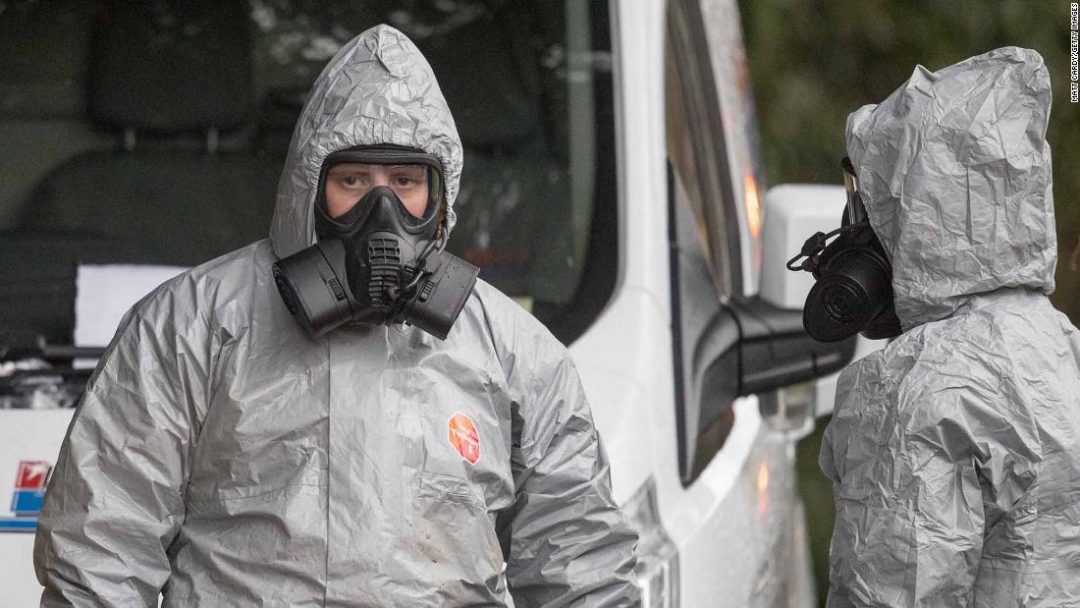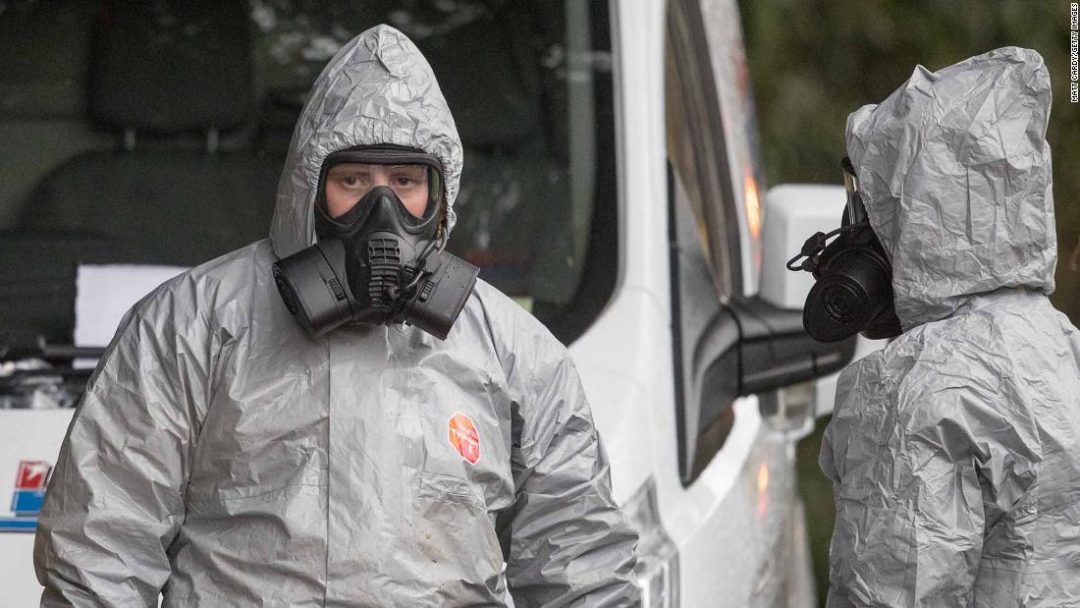To my knowledge, none of the questions I wrote in my previous piece – 30 questions That Journalists Should be Asking About the Skripal Case – has been answered satisfactorily, at least not in the public domain. Yet despite the fact that these legitimate questions have not yet been answered, and many important facts surrounding the case are still unknown, the case has given rise to a serious international crisis, with the extraordinary expulsion of Russian diplomats across many EU countries and particularly the United States on March 26th.
This is a moment to stop and pause. A man and his daughter were poisoned in the City of Salisbury on 4th March. Yet despite the fact that investigators do not yet appear to know how they were poisoned, when they were poisoned, or where they were poisoned, a number of Western nations have used the incident as a pretext for the co-ordinated expulsion of diplomats on a scale not witnessed even during the height of the Cold War. These are clearly very abnormal and very dangerous times.
I pointed out in my previous piece that it is not my intention to advance some sort of conspiracy theory on this blog. It remains the case that I simply don’t have any holistic theory — “conspiracy” or otherwise — for who carried this out, and I continue to retain an open mind. But since the Government of my country has rushed to judgement without many of the facts of the case being established, and since this has led to the biggest deterioration in relations between nuclear-armed nations since the Cuban Missile Crisis, it seems to me that it is more important than ever to keep asking questions in the hope that answers will come.
And so, for what it’s worth, here are 20 more important questions that I think that journalists ought to be asking regarding this case:
1. Have the police yet identified any suspects in the case?
2. If so, is there any evidence connecting them to the Russian Government?
3. If not, how is it possible to determine culpability, as the British Government has done?
4. In her statement to the House of Commons on 12th March 2018, the British Prime Minister, Theresa May stated the following:
It is now clear that Mr Skripal and his daughter were poisoned with a military-grade nerve agent of a type developed by Russia. This is part of a group of nerve agents known as ‘Novichok’. Based on the positive identification of this chemical agent by world-leading experts at the Defence Science and Technology Laboratory at Porton Down [my emphasis added].
In the judgement at the High Court on 22nd March on whether to allow blood samples to be taken from Sergei and Yulia Skripal for examination by the Organisation for the Prohibition of Chemical Weapons (OPCW), evidence submitted by Porton Down to the court (Section 17 i) stated the following:
Blood samples from Sergei Skripal and Yulia Skripal were analysed and the findings indicated exposure to a nerve agent or related compound. The samples tested positive for the presence of a Novichok class nerve agent or closely related agent [my emphasis added].
So the Prime Minister said that Porton Down had positively identified the substance as a Novichok nerve agent. The statement from Porton Down says that their tests indicated that it was a Novichok agent or closely related agent. Are these two statements saying exactly the same thing?
5. Why were the phrases “related compound” and “closely related agent” added to the statement given by Porton Down, and is this an indication that the scientists were not 100% sure that the substance was a “Novichok” nerve agent?
6. Why were these phrases left out of the Prime Minister’s statement to the House of Commons?
7. Why did the Prime Minister choose to use the word “Novichok” in her speech, rather than the word Foliant, which is the actual name of the programme initiated by the Soviet Union when attempting to develop a new class of chemical weapons in the 1970s and 1980s?
8. When asked in an interview with Deutsche Welle how scientists at Porton Down had found out so quickly that the nerve agent was of the “Novichok” class of chemical weapons, the Foreign Secretary, Boris Johnson, was asked whether Porton Down possesses samples of it. Here is how he replied:
They do. And they were absolutely categorical and I asked the guy myself, I said, ‘Are you sure?’ And he said there’s no doubt [My emphasis].
If Mr Johnson’s statement is correct, and the Defence Science and Technology Laboratory (DSTL) at Porton Down has samples of “Novichok” in its possession, where did they come from?
9. Were they produced at Porton Down?
10. How long have they had them?
11. Why has the DSTL not registered possession of these substances with the OPCW, which it is legally obliged to do under the Chemical Weapons Convention (CWC)?
12. Does this admission by Mr Johnson not indicate that “Novichoks” can be made in any advanced chemical weapons facility, as indeed they were under the auspices of the OPCW in Iran in 2016?
13. If so, how can the Government be sure that the substance used to poison Mr Skripal and his daughter was made in or produced by Russia?
14. In her statement to the House of Commons on Wednesday 14th March, the British Prime Minister stated that there were only two plausible explanations for poisoning of Mr Skripal and his daughter:
Either this was a direct act by the Russian State against our country. Or conceivably, the Russian government could have lost control of a military-grade nerve agent and allowed it to get into the hands of others.
Other than the actual substance used, is there any hard evidence that led the Government to conclude these as being the only two plausible scenarios?
15. On March 26th, a number of countries expelled Russian diplomats in an apparent response to the incident in Salisbury. Yet at this time, the OPCW had not yet investigated the case, nor analysed blood samples. Why was the clearly co-ordinated decision to expel diplomats taken before the OPCW’s investigation had concluded?
16. Has this not put huge pressure on the OPCW to come up with “the right” conclusion?
17. It is reckoned that the OPCW’s investigation into the substance used will take at least three weeks to complete, whereas it took Porton Down less than a week to analyse it. What accounts for this difference?
18. Will the OPCW be using the samples of “Novichok” that Boris Johnson says are held at Porton Down to compare with the blood samples of Mr Skripal and his daughter?
19. If not, on what basis will this comparison be made, since the first known synthesis of a “Novichok” was made by Iran in 2016?
20. If the OPCW discovers that the substance is indeed a “Novichok”, will this be sufficient evidence with which to establish who carried out the attack on the Skripals or — given that other countries clearly have the capability to produce such substances — would more evidence be needed?
Reprinted with permission from The BlogMire.


